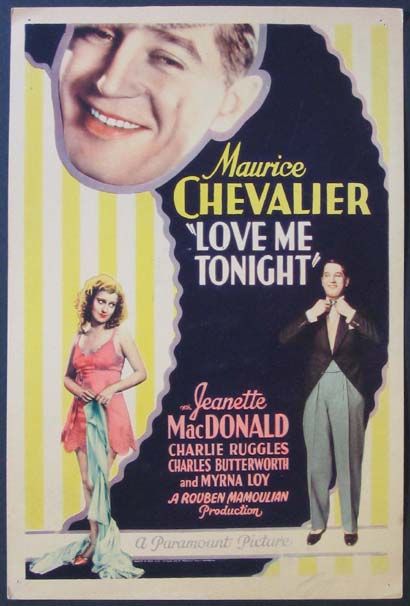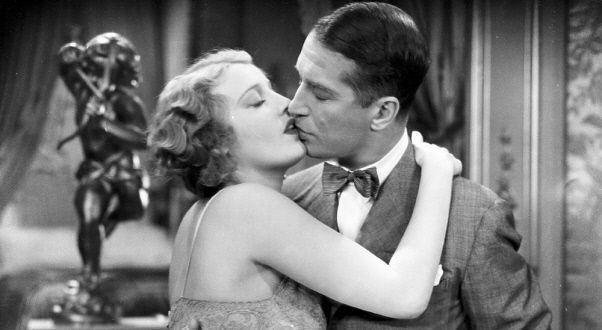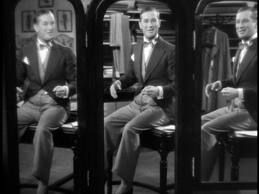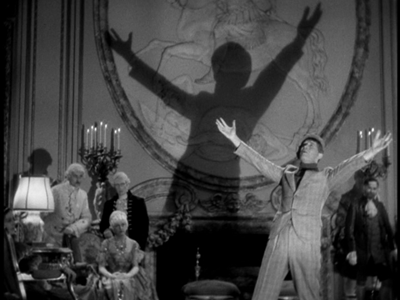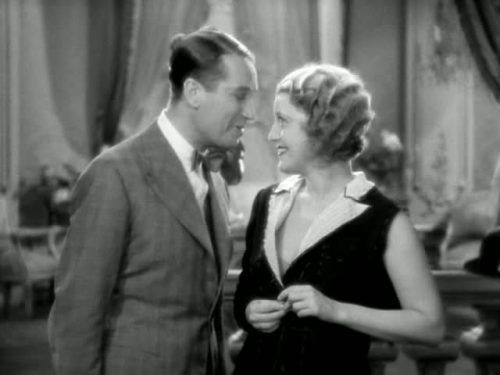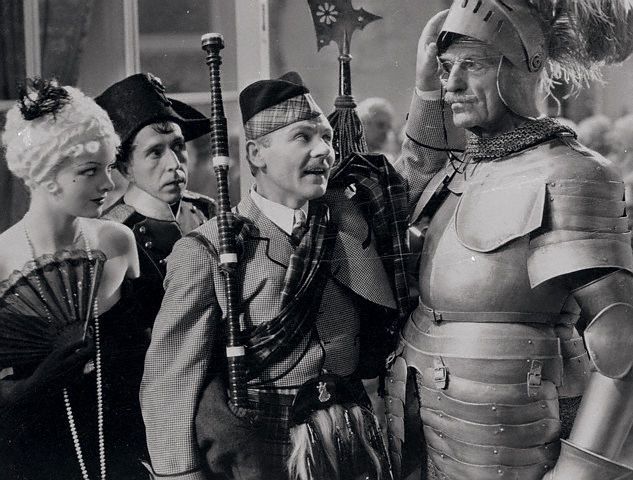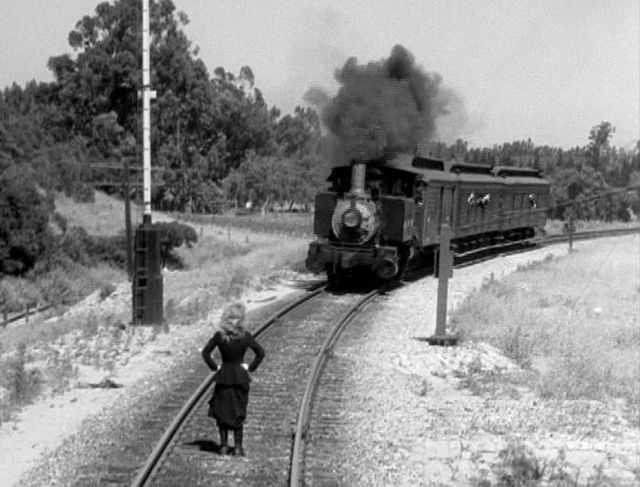The
Wizard of Oz
1939
Director: Victor Fleming
Starring: Judy Garland, Frank Morgan,
Ray Bolger, Bert Lahr, Jack Haley, Margaret Hamilton
The
Wizard of Oz
is what I call an “exception” movie.
People who don’t like musicals tend to like The Wizard of Oz, despite
the fact that it’s a musical. People who
say they don’t like old movies tend to like The Wizard of Oz, despite
the fact that it’s 75 years old. It’s a
film that has transcended its origins and become a part of the national film
lexicon. Everyone and their dog knows,
and most likely loves, The Wizard of Oz.
The
story revolves around Kansas farm girl Dorothy (Garland) who is dissatisfied
with her simple life and longs for more.
When a tornado picks up Dorothy’s house with Dorothy inside it and drops
her in the magical land of Oz, it seems like Dorothy’s wish has come true, but
she is quick to realize that you need to be careful what you wish for. Dorothy soon wishes that she can return home
to her family and friends in Kansas, and enlists the aid of the Scarecrow
(Bolger), the Tin Man (Lahr), the Cowardly Lion (Lahr), and the Wizard himself
(Morgan) to battle the evil Wicked Witch of the West (Hamilton) so she can find
her way back home. After all, there’s no
place like home.
Now
here’s where I make a pretty darn big confession: I am not in love with The
Wizard of Oz. And more than that,
I never have been. (Did I just quote
Gilbert and Sullivan? Yes I did. Bonus points to those who can tell me which
operetta I just referenced.)
Let
me explain a bit more: I do not think The Wizard of Oz is a bad or
inferior film. I think it’s great that
so many people know and adore this film.
It just never found its way into my heart the same way it apparently has
with the rest of the Western Hemisphere.
And before y’all go screaming at me about having ice in my heart for not
being enamored of this film, try to give me a chance to explain. And stop judging, because that’s not very
nice.
I
have a theory why this isn’t a personal favorite of mine, and it has a lot to
do with my disposition as a young Siobhan.
Like pretty much everyone else, this movie was screened quite a bit when
I was a child. I remember watching it
over and over and over again.
A
significant fact you must know about me: young Siobhan was a sissy.
I
hated scary books, scary cartoons, and scary movies. I remember going to a sleepover in elementary
school where one of the other girls was hell bent on us watching A
Nightmare on Elm Street and I practically had a panic attack from the very
THOUGHT of us watching a horror movie. I
watched Star Wars: A New Hope for the first time when I was six, and
the trash compactor scene terrified me so deeply, I pointedly refused to watch Star
Wars again for another eight years.
And
I think the reason I don’t love The Wizard of Oz is because it
scared me too much as a kid, but my family kept on watching it anyway and I
couldn’t tell anyone.
So,
what parts of The Wizard of Oz traumatized me?
Let’s
start at the beginning, shall we?
1. Miss
Gulch trying to take Toto away from Dorothy.
I’ve always had an affinity to animals, even as a youngster, and to
watch Dorothy as her beloved pet is forcibly removed from her hands broke my
heart. I didn’t like that, no I didn’t
like that one bit.
2. Dorothy
being locked out of the storm shed. As I
mentioned early on, I’ve seen this film many many times, but I still got
anxious every single time the tornado comes.
It’s as if I thought that hoping Dorothy would reach safety would
somehow change the plot of the film. Just
one time, just ONE time, I’d love it for Dorothy to not be stuck outside in a
natural disaster.
3. The
first arrival of the Wicked Witch of the West.
SHE APPEARS FROM NOWHERE IN A PUFF OF ORANGE SMOKE. AND THEN SHE IMMEDIATELY TRIES TO KILL
DOROTHY. The Wicked Witch of the West
wholeheartedly deserves her spot as one of the greatest villains of all time
because she basically scared the crap out of me as a child, and she is so very
frightening from the very beginning on.
4. The
moving trees that throw apples at Dorothy when she meets the Tin Man. It’s how they stand stock still and then
start mercilessly beating on Dorothy and the Scarecrow. I mean honestly, this is the stuff of my
nightmares.
5. When
the Wicked Witch of the West throws fire balls at the Scarecrow. HE’S MADE OF STRAW. SHE’S TRYING TO KILL HIM. Do you know how horrible it is for a six year
old to imagine a beloved character burning to death? Because that’s what went through my head in
that scene.
6. The
scary forest when we meet the Cowardly Lion for the first time. The set designers did their job when they
made this incredibly creepy forest, and every single time Dorothy entered this
place, I wanted to look away.
7. The
poppies. The goddamned poppies. The Wicked Witch drugs our gang to try to
stop them. What’s truly frightening in
this scene is how she manages to do this from far away in her castle, nowhere
near the Emerald City. She’s incredibly
powerful and insidious in her methods.
8. “Surrender
Dorothy.” Because nothing says
frightening like death threats in the sky.
9. Approaching the Wizard of Oz
for the first time. THERE ARE FIREBALLS
AND A GIGANTIC DISEMBODIED HEAD WHO YELLS AT EVERYONE. THIS IS NOT SOMETHING THAT MADE ME HAPPY AS A
CHILD. Y’know the Cowardly Lion in this
scene? Yeah, that was me.
10. The forest surrounding the
Wicked Witch of the West’s castle.
Again, I think I hate the set designers of this film.
11. Flying monkeys. Fuck no.
Stop giving me nightmares. “Fly,
my pretties!” What you just heard was the sound of child Siobhan running away
from this movie.
12. The hourglass with red sand
ticking away the remaining moments of Dorothy’s life when she’s trapped in the
Wicked Witch’s castle. Having that kind
of time limit put on her life made me so anxiety-ridden as a child.
13. When the Lion, the Tin Man, and
the Scarecrow go undercover as the guards to break into the Witch’s
Castle. The music (which is heavily
pulled from Mussorgsky’s Night on Bald Mountain, a genuinely frightening
classical music composition), the costumes, the dark lighting and dangerous
set, all made this a big pile of “NOPE” to me.
14. The death of the Wicked
Witch. You’d think that by this point in
the picture, I’d be overjoyed to watch the villain die. Nope, not scaredy cat little Siobhan, oh no. I found her death traumatizing, watching her
shrivel and burn away as if she is being corroded by acid.
Yep. This movie basically scared the pants off of
me as a kid. And I had to watch it over
and over and OVER again. So you’ll
pardon me if it’s not a personal favorite.
Now,
having made that rather exhaustive list, you can perhaps understand why this
film, frankly, filled me with terror as a young child and why I never quite
managed to fall in love with it. And
while the things on that list don’t really scare me anymore, I had to watch
this movie SO many times as a child and I didn’t have the nerve to tell my
parents that it scared me so heartily that I made myself sit through this
frightfulness too many times to ever develop an emotional affinity for the film.
I
told you I was a sissy when I was a kid.
Seriously, you don’t understand just how much everything scared me.
Which
isn’t to say there weren’t parts of this film that I enjoyed. The stand out setpieces are easily the
Munchkinland sequence and the arrival the Emerald City. These two scenes are still my favorite parts
of The
Wizard of Oz, and I DO love them, very much. Both are happy parts of the film, which meant
I wasn’t cowering behind my hands as a youngster. Both are towering examples of brilliant uses
of Technicolor to achieve a fantasy look.
The colors are rich and luxurious, and both scenes are filled with a
multitude of interesting side characters.
I love the costuming and set design of both of these lands. It’s the rotund, Seussian, illustration-feel
of Munchkinland, and the sleek art deco design of the Emerald City, all
sophistication and smooth lines, that I really love. Add on top of that two fantastic songs that
leave you humming the tunes for the rest of the day and yeah, for sure, these
are my two favorite parts of the film.
The
Wizard of Oz
will always be considered a great film, and rightfully so. It’s a visual achievement with a heartwarming
message, full of indelible characters and charming songs. But it’s not my favorite. It’s basically the first horror film I ever
saw, and because I was terrible at communicating my fear as a child, I was
forced to watch it time and time and time again. No, it doesn’t scare me anymore, but it’s
really too late to reverse the damage. I
appreciate The Wizard of Oz and I can appreciate its stature in the film
world, but it will never be a personal favorite.
Arbitrary
Rating: 8/10. Again, I think this is a
legitimately good film, full of so many iconic film moments. But… JESUS it scared me as a kid.
ETA:
I will always remember Margaret Hamilton going on Mister Rogers’ Neighborhood
and getting dressed in the Wicked Witch costume in order to show young children
that the Wicked Witch was just a character and not a real monster.
Additional ETA: and yes, I've seen Return to Oz. And I rather like it, even as a kid, despite the fact that it's exponentially creepier than this film. The difference was that everyone around me acknowledged that Return to Oz was a scary film and didn't make me watch it unless I wanted to. I couldn't vocalize my fear of Wizard, so my parents just kept... putting it on.















